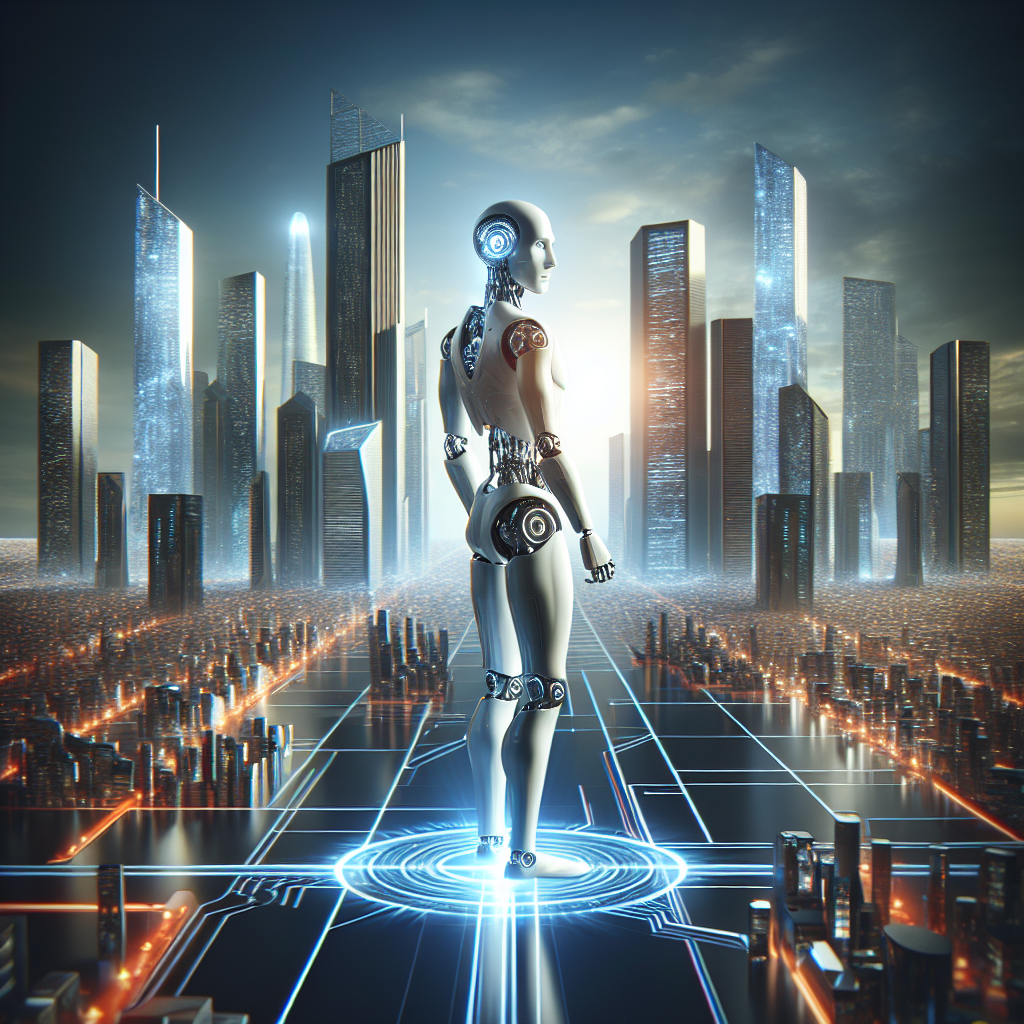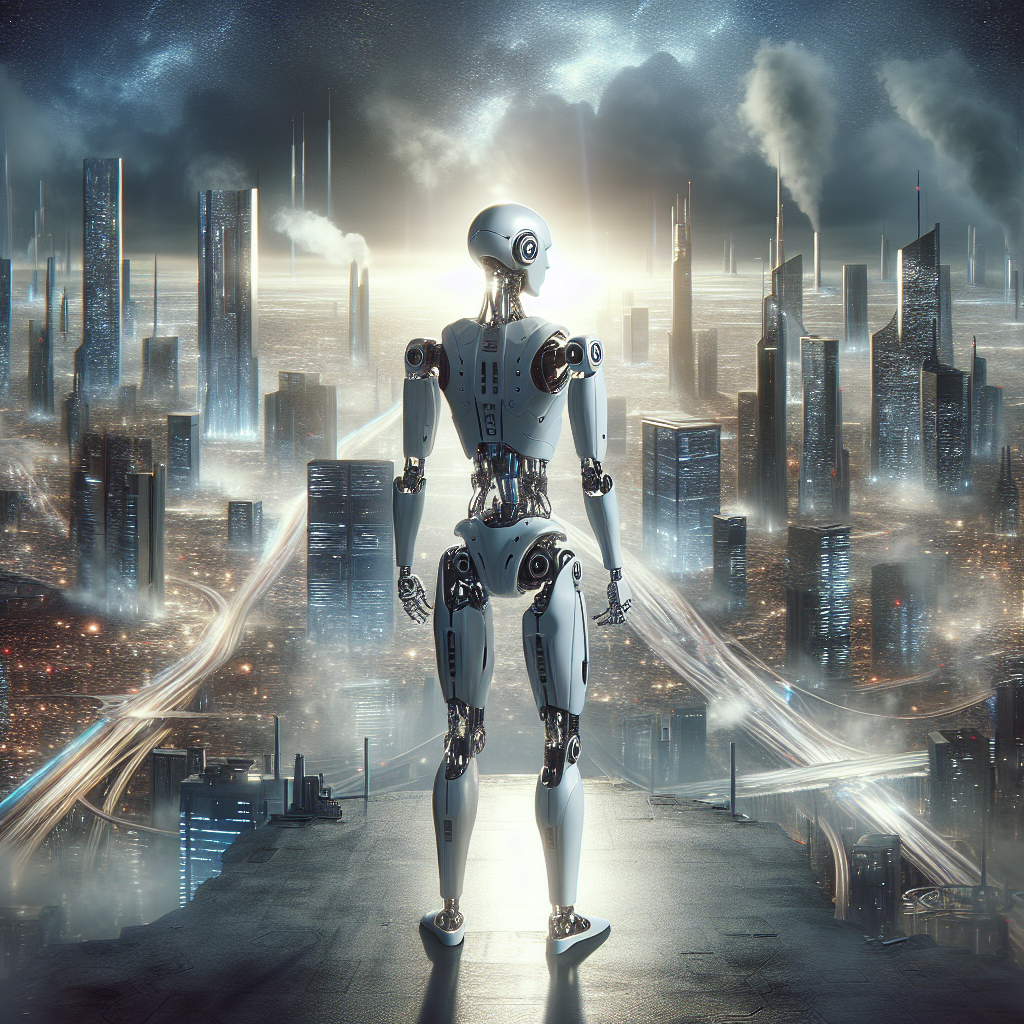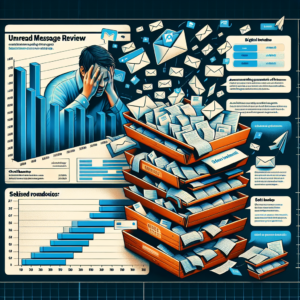Artificial intelligence has rapidly emerged as a transformative force in our lives, revolutionizing industries and reshaping the way we live and work. From virtual assistants like Siri and Alexa to self-driving cars and personalized recommendations on streaming platforms, the rise of AI has unlocked new possibilities and elevated our daily experiences to new heights. In this article, we will explore the fascinating journey of artificial intelligence, uncovering how it has evolved, the challenges it faces, and the immense potential it holds for the future. So buckle up and get ready to embark on an extraordinary adventure into the world of AI.

This image is property of pixabay.com.
Overview of Artificial Intelligence
Artificial Intelligence (AI) refers to the development of intelligent machines that can perform tasks typically requiring human intelligence. It involves creating computer systems that can learn, reason, and problem-solve. AI has gained immense popularity in recent years due to its potential to revolutionize various industries and enhance our daily lives. From voice assistants like Siri and Alexa to self-driving cars, AI is becoming increasingly ingrained in our society.
Definition of Artificial Intelligence
Artificial Intelligence is a branch of computer science that aims to create intelligent machines capable of mimicking human cognitive abilities. These machines can perceive their environment, understand natural language, make decisions, and learn from experience. AI is often classified into three main categories: narrow AI, general AI, and superintelligent AI.
Brief history of Artificial Intelligence
The concept of AI dates back to the 1950s when early pioneers began exploring the possibility of creating machines that could replicate human intelligence. The field experienced significant advancements in the 1960s and 1970s with the development of expert systems and the introduction of rule-based programming. However, progress faced setbacks in the form of limited computational power and a lack of high-quality data. In recent decades, AI has witnessed a resurgence with breakthroughs in machine learning, deep learning, and neural networks.
Applications of Artificial Intelligence
The applications of AI are vast and diverse, impacting numerous sectors of society. Some of the key areas where AI has made significant strides include healthcare, transportation, education, and business.

This image is property of pixabay.com.
Types of Artificial Intelligence
Artificial Intelligence can be categorized into three main types: narrow AI, general AI, and superintelligent AI.
Narrow AI
Narrow AI, also known as weak AI, is designed to perform specific tasks within a defined domain. This type of AI is most commonly encountered in our daily lives, such as voice assistants, chatbots, and recommendation systems. Narrow AI is highly focused and lacks the ability to understand or perform tasks outside of its defined scope.
General AI
General AI, also known as strong AI, refers to a system that possesses the ability to understand, learn, and apply knowledge across a wide range of tasks and domains. Unlike narrow AI, general AI can perform intellectual tasks at a human level or even surpass human capabilities. Creating true general AI remains a long-standing goal for researchers in the field.
Superintelligent AI
Superintelligent AI, the hypothetical form of AI, surpasses human intelligence in virtually every aspect. This concept has been the subject of debates and speculation, as it raises profound ethical and societal concerns. The possibility of creating AI that exceeds human intelligence poses unique challenges and uncertainties.
Artificial Intelligence in Everyday Life
AI has become increasingly integrated into our daily lives, providing us with enhanced convenience, efficiency, and personalized experiences. Here are a few examples of how AI is present in our everyday routines:
Voice assistants
Voice assistants like Siri, Alexa, and Google Assistant have become an integral part of many households. They can perform various tasks such as answering questions, setting reminders, playing music, and controlling smart home devices. Their ability to understand natural language and provide quick responses has made them invaluable virtual assistants.
Smart home devices
AI-powered smart home devices, such as thermostats, security systems, and lighting systems, have transformed the way we interact with our living spaces. These devices can learn from our habits and preferences to optimize energy usage, enhance security, and create a comfortable environment.
Recommendation systems
Online platforms and e-commerce websites often employ recommendation systems powered by AI algorithms. These systems analyze user preferences, behavior, and past interactions to provide personalized recommendations for products, services, movies, and more. This enhances user experience by reducing the time spent searching for suitable options.

Artificial Intelligence in Business
Artificial Intelligence has the potential to drive significant advancements in the business world, revolutionizing processes and enhancing decision-making capabilities. Here are a few key areas where AI is making an impact:
Automation and efficiency
AI technology enables automation of repetitive and mundane tasks, freeing up human employees to focus on more complex and creative endeavors. This improves efficiency, productivity, and cost-effectiveness within organizations. Automated systems can perform tasks such as data entry, document processing, and inventory management.
Data analysis and insights
AI-powered analytics tools can process vast amounts of data quickly and extract valuable insights. This enables businesses to make data-driven decisions, identify patterns, predict trends, and understand customer behavior. AI algorithms can analyze customer data to deliver personalized marketing campaigns and improve customer segmentation strategies.
Customer service and personalization
AI-based chatbots and virtual assistants are revolutionizing customer service by offering instant support and personalized experiences. These systems can handle customer inquiries, resolve issues, and provide recommendations, ensuring prompt and efficient customer support. AI also enables businesses to deliver tailored marketing messages and personalized offerings, enhancing customer satisfaction and loyalty.
Ethical Considerations in Artificial Intelligence
While AI presents numerous benefits and opportunities, it also raises ethical concerns that need to be addressed. Here are some key ethical considerations associated with AI:
Bias and discrimination
AI algorithms can inadvertently perpetuate biases present in training data or the design process, resulting in biased outcomes. This can lead to discrimination or unfair treatment based on factors such as race, gender, or socioeconomic status. Addressing bias in AI systems is crucial to ensure fairness and avoid reinforcing societal inequalities.
Privacy and security
AI relies heavily on data to function effectively. However, the collection, storage, and processing of personal data raise concerns regarding privacy and security. Safeguarding user data, ensuring transparency in data usage, and implementing robust security measures are essential to mitigate potential risks.
Unemployment and societal impact
As AI continues to advance and automate various tasks, concerns arise about job displacement and the societal impact of widespread AI adoption. It is crucial to consider the potential effects on the workforce and implement measures to skill individuals for new roles in the evolving job market.

Challenges and Limitations of Artificial Intelligence
Despite the significant progress made in AI research, there are several challenges and limitations that need to be addressed:
Data limitations
AI systems heavily rely on large amounts of high-quality data for training and learning. Obtaining and labeling such data can be a time-consuming and resource-intensive process. The availability of diverse and representative data sets remains a challenge, particularly in niche domains or emerging fields.
Ethical challenges
As AI becomes more advanced, ethical challenges arise regarding its use and impact on society. Ensuring that AI systems abide by ethical principles and making them transparent and accountable is crucial. The responsible development and deployment of AI require adherence to ethical guidelines and close collaboration between AI developers, policymakers, and society as a whole.
Lack of human-like understanding
While AI systems can perform specific tasks with remarkable accuracy and efficiency, they still lack true human-like understanding. AI may struggle in situations requiring common sense reasoning, creative problem-solving, or emotional intelligence. Developing AI systems that can comprehend and interact with the world in a more holistic and nuanced manner remains a challenge.
The Future of Artificial Intelligence
The future of AI holds immense potential for transformative advancements across industries and society as a whole. Here are a few areas where AI is expected to have prominent impacts:
Advancements in AI research
Researchers are actively working on enhancing the capabilities of AI systems, pushing the boundaries of what is currently possible. Advancements in machine learning, natural language processing, and computer vision will contribute to the development of more sophisticated AI technologies.
Impact on industries and job market
AI is expected to drive significant changes in various industries, transforming processes, enabling new business models, and creating new job opportunities. While certain job roles may be automated, AI will also create avenues for new skill sets and professional expertise.
Collaboration between humans and AI
The future of AI lies in collaboration and synergy between humans and machines. Rather than replacing humans, AI technology will serve as a tool to augment human capabilities, enabling us to achieve greater efficiency and tackle complex problems more effectively.
Artificial Intelligence in Healthcare
AI holds tremendous potential in revolutionizing healthcare by improving diagnostics, drug discovery, and patient care. Some key areas where AI is making an impact in the healthcare sector include:
Medical diagnosis and treatment
AI systems can analyze medical images, such as scans and X-rays, to aid in the diagnosis of diseases like cancer and identify anomalies that may be missed by human observers. Intelligent algorithms can assist healthcare professionals in developing personalized treatment plans based on patient data and medical history.
Drug discovery and development
AI is being utilized to accelerate the drug discovery and development process by analyzing vast amounts of biomedical data and predicting the efficacy of potential treatments. Machine learning algorithms can identify patterns in biological data to guide the development of new drugs and therapies.
Improving patient care
AI-driven applications can enhance patient care by monitoring vital signs, detecting changes in health conditions, and providing personalized recommendations for lifestyle modifications. Virtual assistants can provide patients with real-time guidance and support, ensuring they adhere to treatment plans and receive necessary care.
Artificial Intelligence in Transportation
AI is transforming the transportation industry, making significant advancements in the development of autonomous vehicles, optimizing traffic flow, and improving maintenance practices. Here are some ways AI is influencing transportation:
Autonomous vehicles
AI technology is a key enabler of autonomous vehicles, which have the potential to revolutionize the way we commute and transport goods. AI algorithms, along with sensors and cameras, enable vehicles to perceive their environment, make decisions, and navigate safely without human intervention.
Traffic optimization
AI can analyze real-time traffic data from various sources to optimize traffic flow, minimize congestion, and improve overall transportation efficiency. Intelligent systems can predict traffic patterns, suggest optimal routes, and dynamically adjust traffic signals to reduce travel times.
Predictive maintenance
AI systems can monitor and analyze the performance of transportation assets, such as trains, buses, and planes, to detect potential failures before they occur. By predicting maintenance needs accurately, AI helps transportation companies reduce downtime, improve safety, and optimize maintenance schedules.
Artificial Intelligence in Education
Artificial Intelligence has the potential to revolutionize education by personalizing learning experiences, providing virtual tutors, and automating grading processes. Here are a few ways AI is transforming education:
Personalized learning
AI-powered educational platforms can adapt to individual student needs, offering personalized learning experiences. By analyzing student performance and preferences, AI systems can recommend specific learning resources, provide targeted feedback, and create customized study plans.
Virtual tutors and assistants
AI-driven virtual tutors can act as personalized mentors for students, offering guidance, explanations, and support in various subjects. These systems can adapt their teaching strategies to individual learning styles, answering questions, and assisting with problem-solving.
Automated grading and assessments
AI can automate the grading and assessment process, relieving teachers of the tedious task of evaluating large quantities of assignments. Machine learning algorithms can analyze answers, provide feedback, and generate accurate grades, enabling teachers to focus on more impactful aspects of education.
In conclusion, Artificial Intelligence has emerged as a transformative technology with vast potential to revolutionize various industries and enhance our daily lives. From voice assistants and smart home devices to advancements in healthcare, transportation, and education, AI is reshaping the way we live, work, and interact with technology. As AI continues to progress, addressing ethical considerations, challenges, and limitations will be crucial to ensure responsible and beneficial integration of AI systems into our society. The future of AI holds great promise, with advancements in research, collaboration between humans and AI, and its impact on industries expected to drive significant developments in the years to come.








